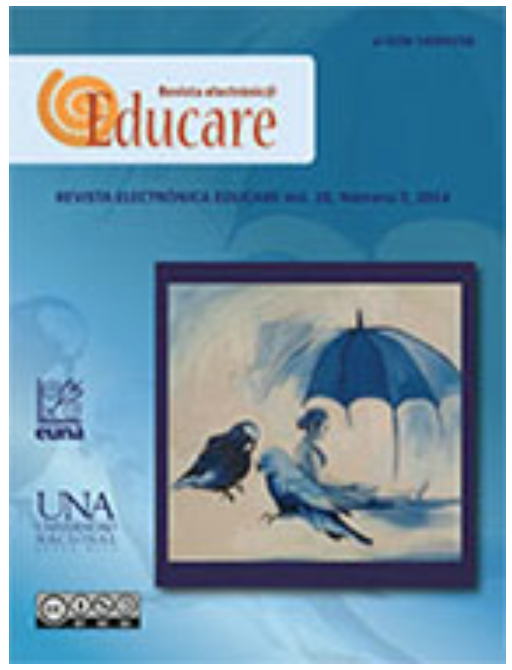Implementation of Collaborative Learning during the Applied Pharmaceutical Calculations Laboratory at the School of Pharmacy from the Universidad de Costa Rica
DOI:
https://doi.org/10.15359/ree.18-2.8Keywords:
Education process, collaborative learning, group, intentional design, collaboration, significant learning.Abstract
The School of Pharmacy is currently facing a problem due to little or no communication among students of the same class or same academic level. Collaborative learning is a methodological strategy that goes beyond just working in groups. Small groups are formed and, after receiving instructions from the professor, group members exchange knowledge and work on an assignment until every person in the group has understood and completed the task, thus learning through collaboration. The main elements of this learning technique include: intentional design through the use of activities prepared by the teacher, collaboration through the active commitment of all the members of the work team, and significant learning through the increase of individual and collective in-depth knowledge on a given topic. Due to the foregoing, this learning experience was conducted during three sessions of the Applied Pharmaceutical Calculations Laboratory (FA-2023) during the second semester of 2012. During these sessions, students were paired and assigned specific tasks that had to be completed before, during and after each lab session. In order to determine the result of the strategy used, the grades obtained by all the groups (24 students) in quizzes and reports during those sessions were compared against the grades obtained in both items during the sessions where no collaborative learning approach was used. In addition, a survey in the form of a questionnaire was used to know the students’ opinion regarding this methodological strategy. Data was examined using a sociodemographic analysis for age and gender, and a descriptive analysis with frequency distribution for the rest of the items in the questionnaire. Results obtained show an enriching experience from the perspective of both the professor and the students. Consequently, the implementation of this strategy is necessary and advisable for the education processes of all learning levels in Costa Rica.References
Barkley, E. F., Cross, K. P. y Major, C. H. (2007). Técnicas de aprendizaje colaborativo. Madrid: Morata.
Cenich, G. y Santos G. (2005). Propuesta de aprendizaje basado en proyectos y trabajo colaborativo: Experiencia de un curso en línea. REDIE. Revista Electrónica de Investigación Educativa, 7(2), 1-18 Recuperado de http://redie.uabc.mx/index.php/redie/article/view/133/228
Dirección de Investigación y Desarrollo Educativo. Vicerrectoría Académica. (2000). Las estrategias didácticas en el modelo del Tecnológico de Monterrey. Monterrey: Instituto Tecnológico y de Estudios Superiores de Monterrey.
Dirección de Investigación y Desarrollo Educativo. Vicerrectoría Académica (s. f.). Las estrategias y técnicas didácticas en el rediseño. Monterrey: Instituto Tecnológico y de Estudios Superiores de Monterrey.
Gómez, P. y Vázquez, F. (2005). Una institución virtual para el aprendizaje colaborativo. Apertura, 5(1), 103-110. Recuperado de http://www.udgvirtual.udg.mx/apertura/index.php/apertura4/issue/view/50
González, G. y Díaz, L. (2005). Aprendizaje colaborativo: Una experiencia desde las aulas universitarias. Educación y Educadores, 8, 21-44. Recuperado de http://www.redalyc.org/articulo.oa?id=83400804
Maldonado-Granado, L. F., Lizcano-Dallos, A. R., Pineda-Ballesteros, E. y Uribe-Otárola, V. A., Sequeda-Tarazona, J. B. (2008). Comunidades de aprendizaje mediadas por redes informáticas. Educación y Educadores, 11(1), 199-224. Recuperado de http://educacionyeducadores.unisabana.edu.co/index.php/eye/article/view/725/808
Downloads
Published
How to Cite
Issue
Section
License
1. In case the submitted paper is accepted for publication, the author(s) FREELY, COSTLESS, EXCLUSIVELY AND FOR AN INDEFINITE TERM transfer copyrights and patrimonial rights to Universidad Nacional (UNA, Costa Rica). For more details check the Originality Statement and Copyright Transfer Agreement
2. REUTILIZATION RIGHTS: UNA authorizes authors to use, for any purpose (among them selfarchiving or autoarchiving) and to publish in the Internet in any electronic site, the paper´'s final version, both approved and published (post print), as long as it is done with a non commercial purpose, does not generate derivates without previous consentment and recognizes both publisher's name and authorship.
3. The submission and possible publication of the paper in the Educare Electronic Journal is ruled by the Journal’s editorial policies, the institutional rules of Universidad Nacional and the laws of the Republic of Costa Rica. Additionally, any possible difference of opinion or future dispute shall be settled in accordance with the mechanisms of Alternative Dispute Resolution and the Costa Rican Jurisdiction.
4. In all cases, it is understood that the opinions issued are those of the authors and do not necessarily reflect the position and opinion of Educare, CIDE or Universidad Nacional, Costa Rica. It is also understood that, in the exercise of academic freedom, the authors have carried out a rogorous scientific-academic process of research, reflection and argumentation thar lays within the thematic scope of interest of the Journal.
5. The papers published by Educare Electronic Journal use a Creative Commons License:















 The articles published by Educare Electronic Journal can be shared with a Creative Commons License:
The articles published by Educare Electronic Journal can be shared with a Creative Commons License: 



